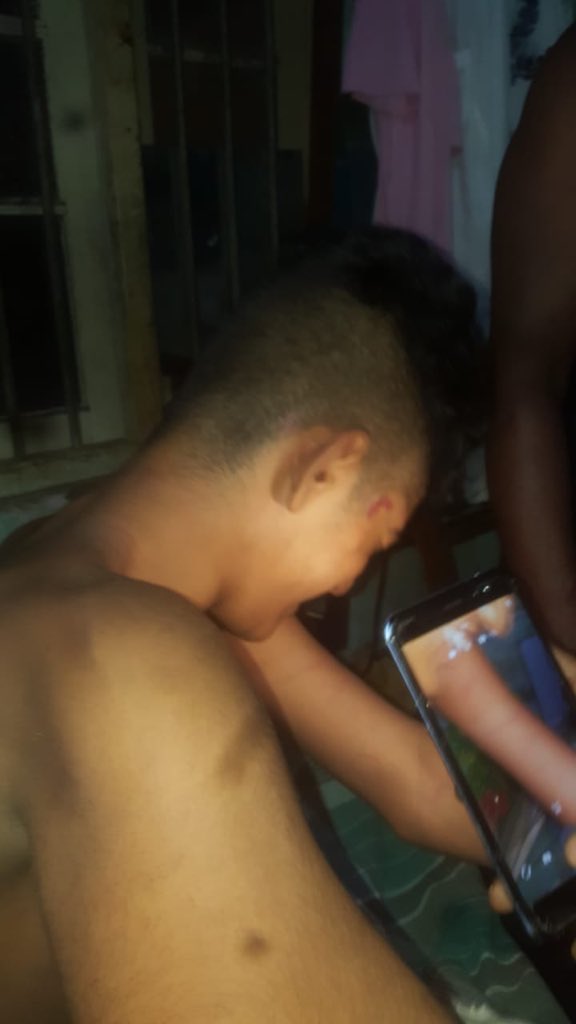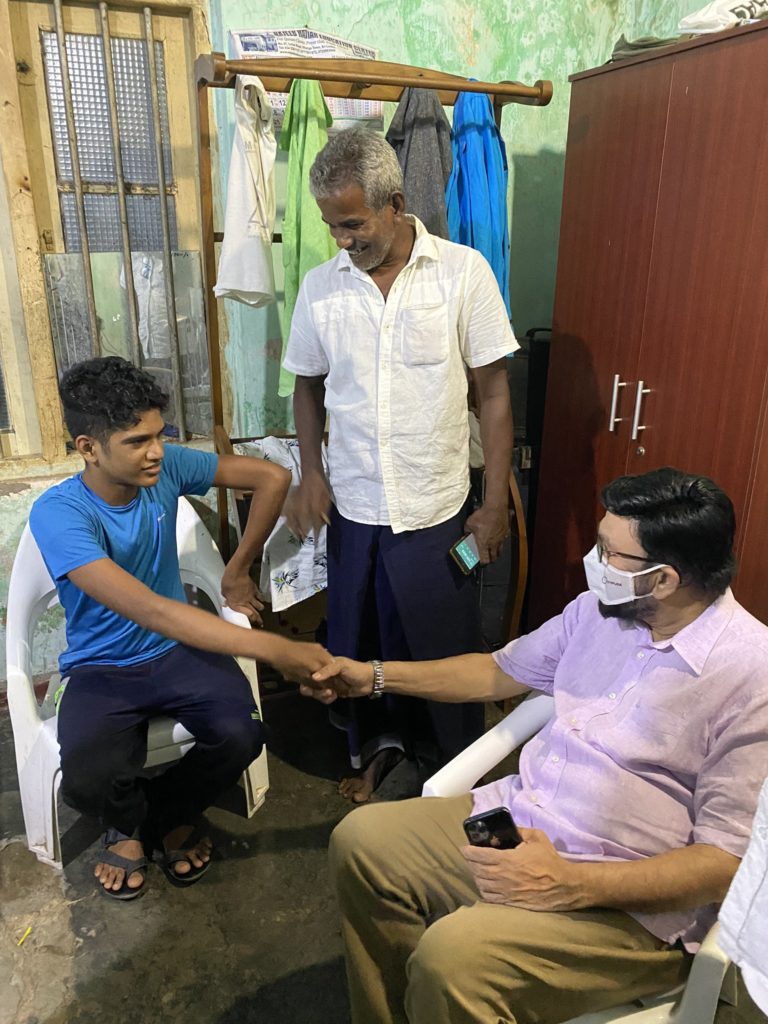Sri Lankan authorities have launched an investigation after shocking video footage showed policemen beating a 14 year old autistic Muslim boy.
The assault took place in Aluthgama, in the southwest of the island, on Thariq Ahamad on May 25 at a police checkpoint during a coronavirus curfew.
After CCTV footage emerged, the attack went viral on social media with the police being condemned for acts of brutality on a mentally underdeveloped child.
A police spokesman said they had suspended three officers for “neglecting their duties.”
Former MP Ali Zahir Moulana visited the boy and his family and has posted an account of what happened on social media.
He said: “Thariq was diagnosed with autism spectrum disorder since he was four and his development has been hindered by it since. Today, he has the capacities of a six year old child. On the 25th of May, while curfew was imposed, Thariq had wandered out of his house on his bicycle and had ventured by the Ambagaha Junction in Dharga Town where there was a police checkpoint manned by 6-7 policemen. He was first stopped and accosted by a policeman in civvies, and pushed violently off his bicycle. Thariq, being autistic, naturally was not able to effectively communicate who he was and what he was doing there.

“Further, according to his father, he was visibly terrified and disoriented. As he was pulled to his feet, another five policemen walked up and started brutally assaulting him, including slapping him across the face and blows to his head and torso. He was then dragged across the road towards the checkpoint and a nearby petrol station where another two civilians who stopped in a three-wheeler also joined the police in assaulting him. All the while he was sobbing unintelligibly, given his circumstances which further infuriated the police.
Subscribe to our newsletter and stay updated on the latest news and updates from around the Muslim world!
“His hands were then tied behind his back as he was trying to struggle free, and then tied against a post under a tree, by the checkpoint. Several passers-by who stopped to witness the onslaught included a man on a motorcycle who knew Thariq and his father who thereafter proceeded to immediately fetch his father and bring him to the checkpoint.
“When the father arrived, he immediately rushed to his son and pleaded with the officers to release him explaining his son’s medical disorder and condition. The officers there then verbally abused the father derogatorily and upon realising that this child was in fact mentally ill, allowed the father to take his son away after forcing the father to agree that the fault was his in letting his son out of the house, in a bid to cover it up.
“Thariq suffered a cut on his head, and several on his back and arms, along with several bruises all over his body where he was assaulted by at least eight grown men. The father, out of fear of reprisal from the police, was apprehensive to take Thariq to hospital that day as he was threatened by the police. Thariq meanwhile was terrified and was fearful to let anyone come near him immediately after the attack, and remains that way to this day.”
Ali Zahir Moulana said that the boy’s father went to the police station to file a complaint but was not taken seriously. And he had a similar experience with a Judicial Medical Officer who upon seeing the boy allegedly scolded the policemen who had brought him there saying: ”why did you bring him here?… His kind (Muslims) are the reason why we are all wearing masks today. He deserved this and they should all be punished. I will show them.'”
Mr Maulana concluded: “Since that time, there has been minimal reporting back from the police, in an obvious attempt to cover-up the incident but the father and others have managed to spread this story especially with the help of the CCTV footage of the incident.
“It is important to note here that police brutality has been common in Sri Lanka for a while. It is only now, with the advent of social media and other technology that the police too have become more aware and are attempting to curtail such violence. However over the lockdown period imposed over last few months we have witnessed several incidents of police brutality against curfew violators islandwide. Thariq is all but one such incident, highlighted primarily because of his mental health and innocence.

“Racial profiling like in this incident with the JMO, is also another serious infliction plaguing our country and needs to be brought to light. There are hundreds if not thousands of similar cases of injustice amongst innocent people who have been subject to discrimination on the grounds of race, religion and ethnicity in our country. While we raise our voices against police brutality and racial profiling in the United States, it is important that we highlight and question the rampant injustices happening within Sri Lanka as well.
“Violence and racism occurring incessantly are precursors to a failed state, and if we are unable to give the unfortunate victims a voice then we are just as guilty as the perpetrators themselves.”
Since the story went viral several prominent Sri Lankans have taken to social media demanding justice, including by the ex President’s son and the former national cricket captain.
Tensions between Muslims and the majority Buddhist Sinhalese population came to a head in Easter 2019 after local “jihadists” were accused of suicide bombings at three hotels and three churches that killed 279 people.
Weeks later, Sinhalese mobs attacked Muslims, killing one and wounded dozens more. Hundreds of homes and vehicles were destroyed and the authorities were accused of failing to stop the violence – a charge denied by Colombo.











![24 Hour Road Trip Through Free Syria [Short Film]](https://5pillarsuk.com/wp-content/uploads/2025/02/IMG_5907-218x150.jpg)









